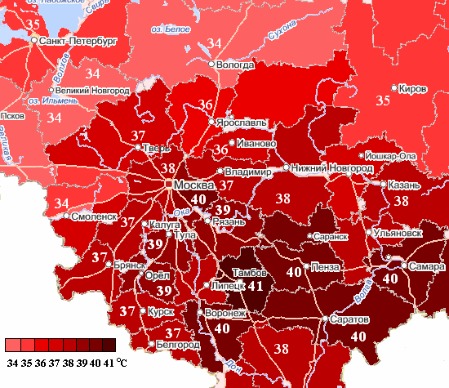Summer in the southwest is a dreadful time. Temperatures regularly exceed 110 degrees in populated urban areas. Cars bake, tires and dashboards deform, roads buckle and sidewalks literally becomes hot enough to cook on. But this summer in my current home state of Texas was worse than usual:
For as long as people have been taking weather measurements in Texas, there has never been a summer hotter than the summer of 2011. As wunderground’s weather historian Christopher C. Burt documents in his latest blog post, seventeen major cities in Texas recorded their hottest summer on record in 2011. Most of these stations had records extending back more than 100 years, and several of the records were smashed by an amazing 3.4°F–at Lubbock and at Wichita Falls. Neighboring states also experienced unprecedented heat, with Oklahoma recording America’s hottest month by any state in recorded history during July, and Shreveport, Louisiana breaking its record for hottest month by 3°F in August. Mr. Burt commented to me: ” I do not believe I have ever seen a site with a long period of record, like Shreveport, where records go back to 1874, break its warmest single month on record by an astonishing 3°. This is unheard of. Usually when a site breaks its single month temperature record, we are talking about tenths of a degree, rarely a whole degree, let alone 3 degrees! Hard to believe, frankly.” Texas has also had its worst fire season on record, with over 3.5 million acres burned this year, and it’s driest 1-year period in recorded history.
At least we had an intervention by nature this time, an unusually early cool front came thru and knocked us out of the triple digits. None too soon, the last two weeks were the worst of the worst. Inevitably some mindless sheeple will pretend climatologists and meteorologists are saying this is an out and out example of global warming. They’ll do that in part to pave the way for their own misinformation sure to come in the winter ahead when they will intentionally conflate record snowfall with record cold. But it’s a good point to ponder: is it an example of global warming?
For climatologists, the key is the term global. If the heat in Texas and nearby counties moves the global temperature average up by an arbitrary amount, let’s say one-tenth of one degree, then I’d say by definition its global warming. But that’s not likely to happen. To have that big of an effect, we need an impact like the Russian heat wave of 2010, where temperatures regularly soared 10 to 20 degrees above the average over an area the size of the US for weeks on end.
Texas is merely a datum in a big picture. What matters is the long-term trendline and the theoretical forcing agents driving it. In this case, the trend is not your friend.


May I ask why the image is of Russia?
Oops, never mind. It helps to read the caption.